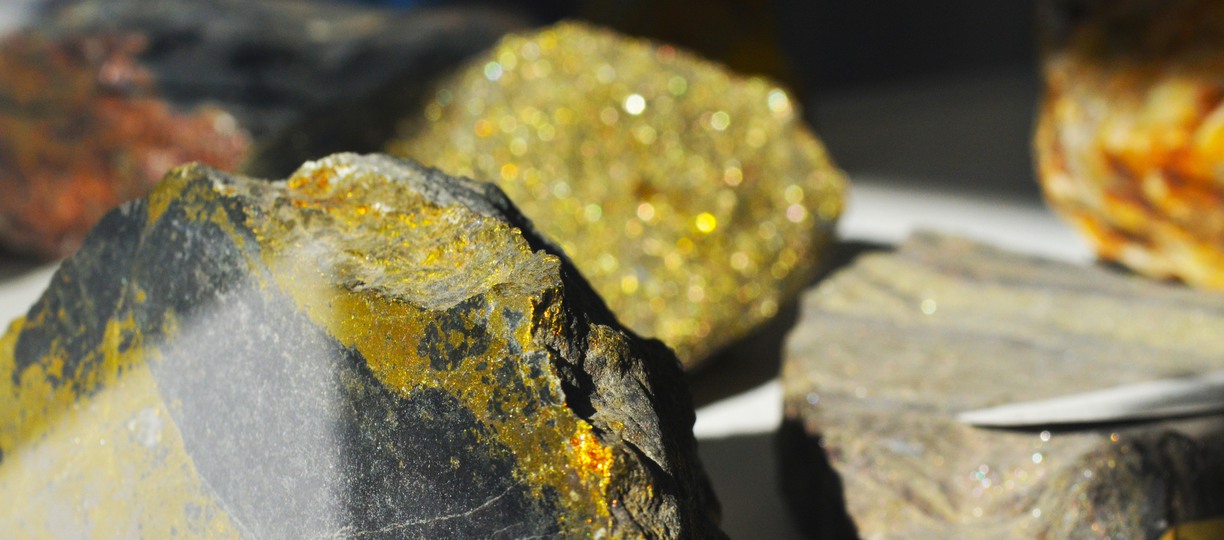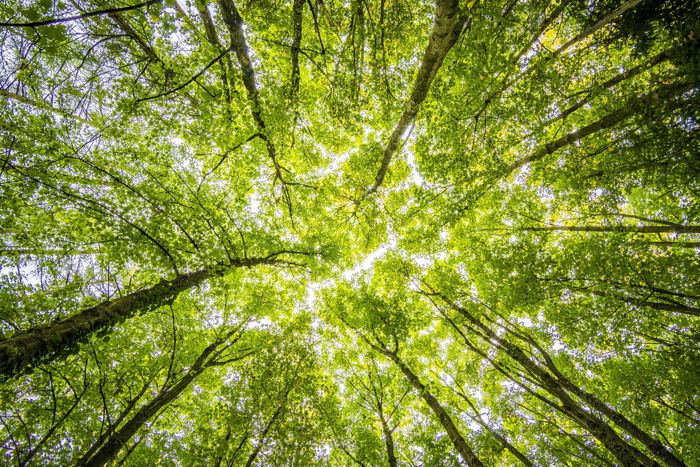
Master Programme in Georesources Engineering
120 credits, programme, master's level, TMGRA
Alt application process
This two year master programme in resources engineering is unique in Europe and provides the students with cutting edge knowledge in georesources engineering, geometallurgy and processing of primary mineral ore resources and secondary resources from metal recycling.
Europe’s leading technical universities with a long tradition in these areas are co-operating in this programme. Through a joint European collaboration, Luleå University (Sweden), Technische Universität Bergakademie Freiberg (Germany), Université de Liège (Belgium), and the Université de Lorraine (France) together with local industrial partners are creating a unique competence network - EMERALD - with the objective to provide world-leading education and research in resources engineering.
The master programme is 2 years (120 ECTS) and consists of specially designed courses at the partner universities. Each student is traveling between the participating universities, studying with them, and finally choosing where he or she wants to write the master thesis. The master programme begins with the first term at the University of Liège, which is also responsible for the admission process. The University of Nancy (2nd term) is responsible for training in advanced knowledge of georesouces modelling. During the 3rd term the universities in Germany and Sweden are responsible for training in geology, mineral resources and mineral processing as well as metal recycling. The third term involves the selection between two directions – primary resources (Luleå) or secondary resources (Freiberg). The programme aims to find the right balance between knowledge of resources, i.e. ores and secondary materials (geology, resource characterization, ore reserve calculation, modelling, thermodynamics, and processing technology, i.e. mineral processing and recycling (crushing, grinding, separation, leaching, and waste management). The programme comprises a broader view of life cycle assessment of mineral resources and the potential for urban mining. The programme also includes professional seminars that illumine the strategic, economic, environmental and social challenges of modern mining as well as a summer school.
The geometallurgical perspective on georesources is central to the programme. Modern teaching with project-based learning and field work is used. Students who fulfil graduation requirements will be awarded the following degrees: Master in Geosciences Engineering (Sweden), Master en Géosciences: planètes, resources, environment (France), Ingénieur Civil des Mines et Géologue (Belgium) The selection of candidates is a joint process between the partner universities. These and local industrial partners can provide opportunities for research and internships. The master programme is intended for candidates with at least a bachelor degree (180 credits) in engineering, with basic knowledge in in geology. Also a master degree in geology with work experience is suitable background. Université de Liège is responsible for the admission process: : http://www.emerald.ulg.ac.be/
The master programme gives the students an international education in the area of mining, mineral processing and metallurgy. Opportunities for attractive and challenging work / R&D in international mining, metallurgy and technology companies. The programme’s internationally renown diplomas provide an excellent foundation for students aiming for a research career.
Sign up for the programme
LTU-95007
Alt application process
Master Programme in Georesources Engineering
Start date 2024-09-02, v. 36 2024, LuleåNormal teachingDay-time 100%Autumn 2024
Programme overview
77 cr
50.5 cr
15 cr
7.5 cr
120 credits, programme, master's level, TMGRA
Alt application process
This two year master programme in resources engineering is unique in Europe and provides the students with cutting edge knowledge in georesources engineering, geometallurgy and processing of primary mineral ore resources and secondary resources from metal recycling.
Europe’s leading technical universities with a long tradition in these areas are co-operating in this programme. Through a joint European collaboration, Luleå University (Sweden), Technische Universität Bergakademie Freiberg (Germany), Université de Liège (Belgium), and the Université de Lorraine (France) together with local industrial partners are creating a unique competence network - EMERALD - with the objective to provide world-leading education and research in resources engineering.
The master programme is 2 years (120 ECTS) and consists of specially designed courses at the partner universities. Each student is traveling between the participating universities, studying with them, and finally choosing where he or she wants to write the master thesis. The master programme begins with the first term at the University of Liège, which is also responsible for the admission process. The University of Nancy (2nd term) is responsible for training in advanced knowledge of georesouces modelling. During the 3rd term the universities in Germany and Sweden are responsible for training in geology, mineral resources and mineral processing as well as metal recycling. The third term involves the selection between two directions – primary resources (Luleå) or secondary resources (Freiberg). The programme aims to find the right balance between knowledge of resources, i.e. ores and secondary materials (geology, resource characterization, ore reserve calculation, modelling, thermodynamics, and processing technology, i.e. mineral processing and recycling (crushing, grinding, separation, leaching, and waste management). The programme comprises a broader view of life cycle assessment of mineral resources and the potential for urban mining. The programme also includes professional seminars that illumine the strategic, economic, environmental and social challenges of modern mining as well as a summer school.
The geometallurgical perspective on georesources is central to the programme. Modern teaching with project-based learning and field work is used. Students who fulfil graduation requirements will be awarded the following degrees: Master in Geosciences Engineering (Sweden), Master en Géosciences: planètes, resources, environment (France), Ingénieur Civil des Mines et Géologue (Belgium) The selection of candidates is a joint process between the partner universities. These and local industrial partners can provide opportunities for research and internships. The master programme is intended for candidates with at least a bachelor degree (180 credits) in engineering, with basic knowledge in in geology. Also a master degree in geology with work experience is suitable background. Université de Liège is responsible for the admission process: : http://www.emerald.ulg.ac.be/
The master programme gives the students an international education in the area of mining, mineral processing and metallurgy. Opportunities for attractive and challenging work / R&D in international mining, metallurgy and technology companies. The programme’s internationally renown diplomas provide an excellent foundation for students aiming for a research career.
Programme overview
77 cr
50.5 cr
15 cr
7.5 cr
Sign up for the programme
LTU-95007
Alt application process
Master Programme in Georesources Engineering
Start date 2024-09-02, v. 36 2024, LuleåNormal teachingDay-time 100%Autumn 2024

"We need engineers with a sustainability focus"
There is no better time to be here than now. So take the opportunity to study in northern Sweden where you can make a real difference!
.jpg)
Top eight reasons to study in the North
Here are eight reasons to study at any of our campus locations, Luleå, Kiruna, Skellefteå or Piteå.

Study in Sweden
Sweden — the land of the famous fika, equality and natural beauty. One of the safest and most innovative countries in the world, we think you would love it here!

Do you have questions about the program?
Our staff will answer you as soon as possible.
Updated:
